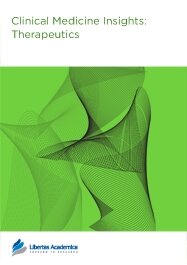

Publication Date: 04 Aug 2010
Type: Review
Journal: Clinical Medicine Insights: Therapeutics
Citation: Clinical Medicine Insights: Therapeutics 2010:2 697-713
doi: 10.4137/CMT.S5420

Over a decade has passed since several groups identified the chemokine receptors CXCR4 and CCR5 as key co-receptors for HIV entry. CCR5 is more important in HIV transmission and during the early course of HIV infection. It is also apparent that protection from HIV infection is afforded to those lacking CCR5—the so called delta-32 homozygotes; in those heterozygous for this mutation, an attenuated course of HIV-infection is observed. Provocatively, those with modified expression of CCR5 are physiologically normal with the exception of poorer outcomes with some of the viral encephalitides specifically West Nile virus and Tick Borne encephalitis. The small molecule, orally-bioavailable CCR5 receptor antagonists, including, maraviroc (MVC), are allosteric inhibitors that lock the CCR5 receptor into a conformation such that the receptor is not able to bind HIV envelope protein; the molecules also variably block intracellular signalling induced by different receptor-binding chemokines. The aims of this review on the CCR5 receptor inhibitors are to summarise information relevant to treatment in individuals with HIV-1 infection. Data from the licensing studies, the side-effect profile and putative long-term risks of CCR5 receptor inhibitor expo- sure, tropism testing and mechanisms of resistance will be reviewed. The potential for using this class of agent as an immunomodulating agent will be detailed. Given that MVC is the only licensed drug in this class at present and reflecting the greater body of work describing this agent, the majority of information in this review relates to MVC. Last, the authors propose the place of MVC in the hierarchy of HIV therapy and future opportunities for research.
PDF (613.42 KB PDF FORMAT)
RIS citation (ENDNOTE, REFERENCE MANAGER, PROCITE, REFWORKS)
BibTex citation (BIBDESK, LATEX)

I would like to thank the staff of Libertas Academica for their assistance in the publication process. From the first e-mail to the final approval, each member of the staff has been friendly, helpful, and professional. The whole process was seamless without any delays in processing of the manuscript. I look forward to working with Libertas Academica again.

All authors are surveyed after their articles are published. Authors are asked to rate their experience in a variety of areas, and their responses help us to monitor our performance. Presented here are their responses in some key areas. No 'poor' or 'very poor' responses were received; these are represented in the 'other' category.See Our Results
Copyright © 2014 Libertas Academica Ltd (except open access articles and accompanying metadata and supplementary files.)
Facebook Google+ Twitter
Pinterest Tumblr YouTube